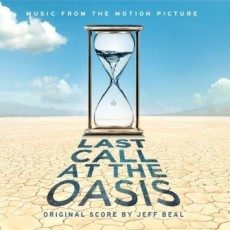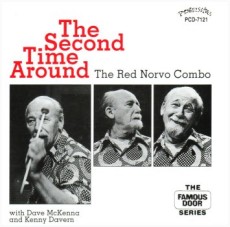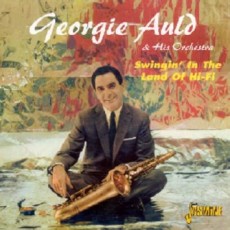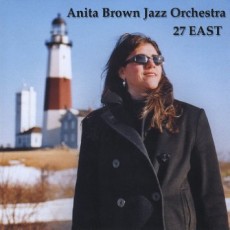
Hollywood On 52nd Street
W.C. Handy composed St. Louis Blues used as the title track for the 1958 film of the same name. The movie had as its stars Nat King Cole portraying W.C. Handy and Ruby Dee as Elizabeth as well as a host of musicians and vocalists not limited to Eartha Kitt, Cab Calloway, Ella Fitzgerald, Mahalia Jackson, Barney Bigard, Red Callender and Pearl Bailey.
The Story: Will Handy grew up in Memphis with his preacher father and his Aunt Hagar. His father intends for him to use his musical gifts only in church, but he can’t stay away from the music of the streets and workers. After he writes a theme song for a local politician, Gogo, a speakeasy singer, convinces Will to be her accompanist. Will is estranged from his father for many years while he writes and publishes many blues songs. At last the family is reunited when Gogo brings them to New York to see Will’s music played by a symphony orchestra.
Sponsored By
www.whatissuitetabu.com

Daily Dose OF Jazz…
Jeff Beal was born in Hayward, California on June 20, 1963 and began trumpet studies in the third grade after attending a school music assembly at Castro Valley’s Marshall Elementary School with his father. Upon hearing the trumpet played, he chose it as his instrument and his grandmother, pianist Irene Beal, gave him a recording of Miles’ collaboration with Gil Evans, Sketches of Spain.
Beal wrote his first long-form composition for the Oakland Youth Symphony Orchestra while a student at Castro Valley High School, combining his love of jazz improvisation with an orchestral accompaniment. This merging of improvisation with classical composition has remained a hallmark of his music. He went on to matriculate through the Eastman School of Music in Rochester, New York studying composition and trumpet earning a Bachelor of Music degree.
Beal composed and recorded his debut album, Liberation, for Island Records. His jazz band went on to perform at The Blue Note and the Montreaux Jazz Festival. At the request of Chick Corea, Beal composed and recorded a concerto for the virtuosic jazz bassist, John Patitucci for Corea’s Stretch Records label.
John’s signature work, Alternate Route, was composed for improvised trumpet and orchestra. Written fifteen years after his first long form composition, this piece was again premiered by Kent Nagano for the Berkeley Symphony Orchestra, spotlighting him as trumpet soloist. He also composed improvisatory concerti for Dave Samuels, Larry Coombs, and the Turtle Island String Quartet.
By the mid-1990s, he relocated to Los Angeles and got his first critical notice in 2001, for his minimalist Americana score to Ed Harris’ directorial debut, Pollock. He has been nominated for thirteen Emmy Awards including Carnivale, Rome and House of Cards. He has won three. Trumpeter and composer Jeff Beal continues to work in film and television, recording and performing concerts.
More Posts: trumpet

Daily Dose Of Jazz…
Mousey Alexander was born Elmer Alexander on June 19, 1922 in Gary, Indiana. He studied at the Roy Knapp School in Chicago, Illinois. It was there that he started a working relationship with Jimmy McPartland and soon afterward began playing with is wife Marian.
By the middle of the 1950s he played with the Sauter-Finegan Orchestra and performed in a small group with guitarist Johnny Smith. In 1956 he accompanied Benny Goodman on a tour of the Far EAst. Later in the decade he often worked with Bud Freeman and Eddie Condon. He would go on to play with Charlie Ventura, Billie Holiday, Red Norvo, Clark Terry, Ralph Sutton, Sy Oliver and Doc Severinsen.
Freelancing during the 1960s with many bands, it was in the 1970s Alexander started recording for Harry Lim under the Famous Door record label. A great well-schooled drummer able to swing any band, he performed with his friend Buddy Rich, who thought highly of his playing.
Drummer Mousey Alexander had a bad stroke in 1980 but fully recovered over time, and played up until his death of heart and kidney failure on October 9, 1988 at age 66.
More Posts: drums

Daily Dose Of Jazz…
Babe Russin was born Irving Russin on June 18, 1911 in Pittsburgh, Pennsylvania. He played with some of the best-known jazz bands of the 1930s and 1940s, including Benny Goodman, Tommy Dorsey and Glenn Miller. He solos on the Glenn Miller band recording of A String of Pearls on Bluebird Records in 1941.
In the early Forties he briefly led his own band. In 1950, Babe was credited as a musician with the backup band on two Frank Sinatra tunes, Should I? and You Do Something To Me. He co-wrote the instrumental “All the Things You Ain’t” with Jimmy Dorsey that was recorded and released in 1945. He also recorded with Jack Hoffman in 1947 and Georgie Auld in 1955.
In 1953 he appeared briefly in the 1953 Universal-International movie The Glenn Miller Story. He plays Cheating On Me with a small group on the soundtrack to the 1954 Warner Bros. Judy Garland movie A Star Is Born. He also appeared in the 1956 movie The Benny Goodman Story. Tenor saxophonist Babe Russin passed away on August 4, 1984.
More Posts: saxophone

Daily Dose Of Jazz…
Anita Brown was born June 17, 1959 in South Hamilton, Massachusetts. She attended and graduated the Pingree School and Andover High School before her family moved to Long Island, New York in 1977. It was at this juncture in her life that she began studying voice, phrasing and inflection with Lennie Tristano, first imitating Billie Holiday and then singing the solos of Lester Young.
A year later she enrolled at SUNY Old Westbury, majored in Music Education, adding photography, dance and choreography to her schedule. In 1980 Anita transferred her major to the University of New Hampshire concentrating on classical piano and voice. In her junior year that she discovered her passion of conducting and by the time she graduated she had a considerable transcript of instrumental and choral conducting along with score study under her belt.
Brown began her career in conducting also in her third year at UNH as a part time band director, prior to graduation and moving back to New York. In addition to studying clarinet, she took on and mastered the trumpet, continuing to play, write and teach. By 1995 she was at the BMI Jazz Composers Workshop and building a body of work for jazz orchestra guided by Jim McNeely, Manny Albam and Mike Abene. There she composed and contributed compositions that were featured in the annual concerts and was a finalist in 2001 and 2003 Charlie Parker Composition Competitions.
In 2000 she founded the Anita Brown Jazz Orchestra, independently recording and releasing her debut CD, 27 East, to critical acclaim and was appeared in six categories on the ballot for the 46th Grammy Awards. She was the first recipient of the ASCAP/International Jazz Composers’ Symposium New Music Award for Big Band Works for her piece The Lighthouse, selected by Bob Brookmeyer, ohn Clayton and Dave Douglas.
She has written arrangements for Nnenna Freeelon, The ount Basie Orchestra, the Jon Faddis jazz Orchestra, Chiuck Owen, and the Jazz Surge, Roseana Vitro, Bobby Short and a number of New York R&B bands.
The Vanguard Jazz Orchestra, the U.S. Army Jazz Ambassadors, BMI New York Jazz Orchestra and numerous college and high school jazz ensembles have performed her original works. As an educator she is on the faculty of New Jersey City University and Sara Lawrence College, and established her Composer Residency Project.
Conductor, arranger and composer Anita Brown consults planning and producing recordings and performances, has served as copyist and/or assistant to Jim McNeely, Maria Schneider, Many Albam, Don Sebesky, John Pizzarelli, the Vanguard Jazz Orchestra, Carnegie Hall Jazz Band and Toshiko Akiyoshi Big Band while serving as archivist for the Gil Evans and Manny Albam estates.
Music: https://youtu.be/9KZo1ItnDCE



